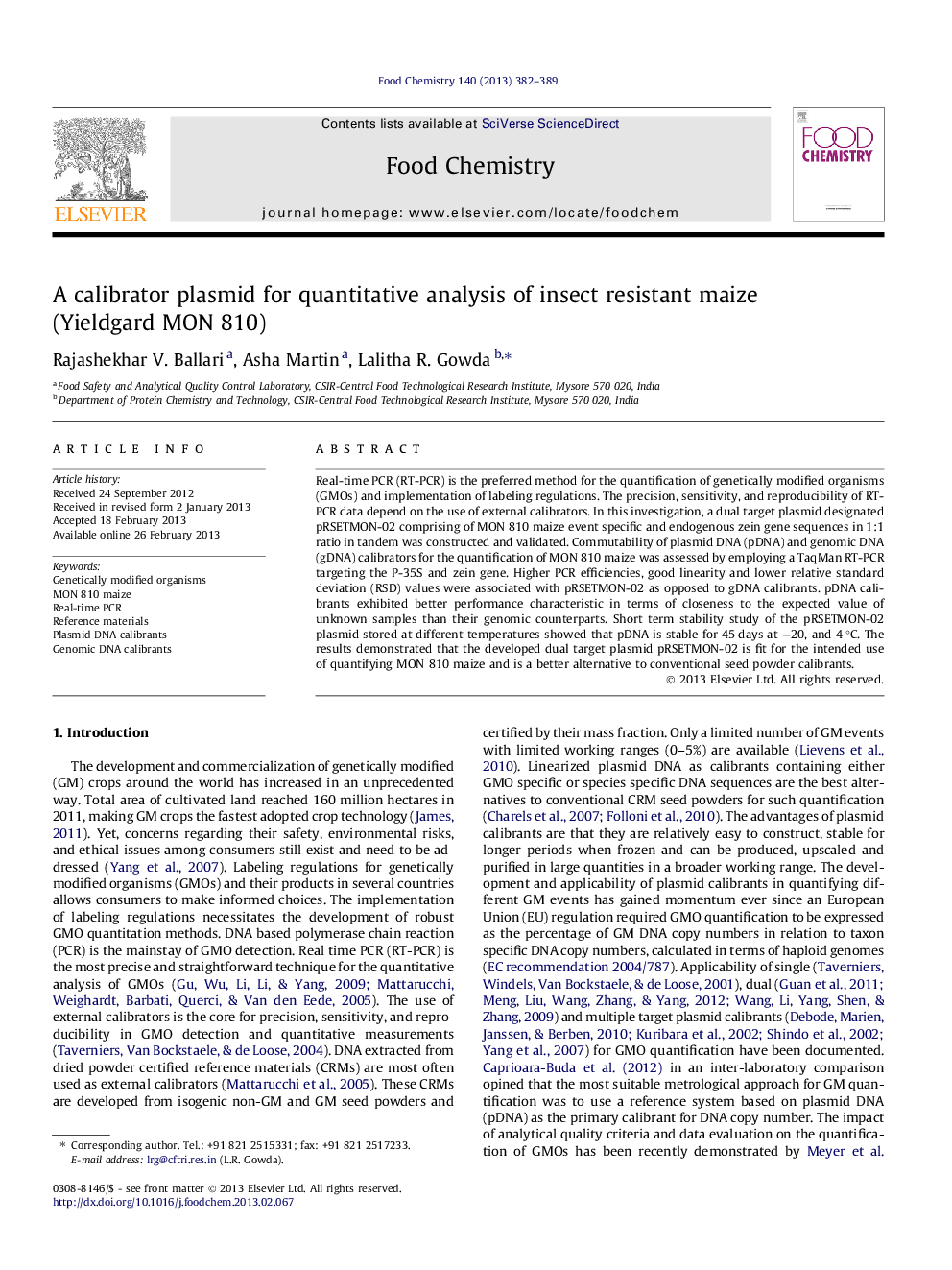| Article ID | Journal | Published Year | Pages | File Type |
|---|---|---|---|---|
| 1184919 | Food Chemistry | 2013 | 8 Pages |
Real-time PCR (RT-PCR) is the preferred method for the quantification of genetically modified organisms (GMOs) and implementation of labeling regulations. The precision, sensitivity, and reproducibility of RT-PCR data depend on the use of external calibrators. In this investigation, a dual target plasmid designated pRSETMON-02 comprising of MON 810 maize event specific and endogenous zein gene sequences in 1:1 ratio in tandem was constructed and validated. Commutability of plasmid DNA (pDNA) and genomic DNA (gDNA) calibrators for the quantification of MON 810 maize was assessed by employing a TaqMan RT-PCR targeting the P-35S and zein gene. Higher PCR efficiencies, good linearity and lower relative standard deviation (RSD) values were associated with pRSETMON-02 as opposed to gDNA calibrants. pDNA calibrants exhibited better performance characteristic in terms of closeness to the expected value of unknown samples than their genomic counterparts. Short term stability study of the pRSETMON-02 plasmid stored at different temperatures showed that pDNA is stable for 45 days at −20, and 4 °C. The results demonstrated that the developed dual target plasmid pRSETMON-02 is fit for the intended use of quantifying MON 810 maize and is a better alternative to conventional seed powder calibrants.
► A dual target plasmid calibrant for the quantification of MON 810 maize was constructed and validated. ► Limit of quantification and limit of detection are evaluated. ► Plasmid calibrant showed better performance characteristics as compared to genomic DNA calibrant. ► Constructed dual target plasmid found to be stable at −20 and 4 °C for 45 days.
